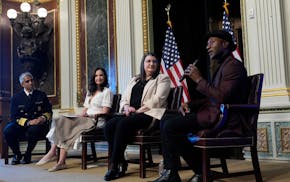The stories in "The Rope Swing," a debut collection by Jonathan Corcoran, concern a decaying West Virginia town, those who remain there, and the young who escape. "Once you go," a mother warns her gay son, "this place will be lost to you forever." To a 19-year-old, the trade-off seems worth it: life in a city as opposed to life in a town where industries have failed and the train no longer stops. In the background loom the mountains.
The first story, "Appalachian Swan Song," invokes the town's history and introduces characters who appear later, among them Hank Burkham, the disreputable pawnshop owner. The town is the story's main character. Its voice serves as conscience and consciousness. "We were mountain people. … We were as sturdy as our old oak trees … the stories of our mountains ennobled even the least of us." Now the townspeople gather to witness a story-in-the-making, the train's last call, its whistle echoing through the hills as it arrives.
Whether during boom times or bust, the people, the weather, the town's secret places, the mountains themselves take hold of one's memory and imagination. In "Excavation," Benny somewhat reluctantly announces, "I'm leaving … and I doubt I'm coming back." In "Brooklyn, 4 A.M.," the New York moonlight leads another exile, dreaming of West Virginia, to wonder whether he'll "be doomed to live with this early morning nostalgia for the rest of his life."
Perhaps his decision to leave for the north occurred one summer when two boys discovered each other by jumping from a rope swing. One of them understands that when a person drops from such a swing to join a friend in the river, "one must also fall" from innocence into experience. In a reverie, he imagines a time when his friend's "unthinkable touch of the hand [will be] rendered acceptable by the privacy of the forest."
Other characters touch and are touched, if not physically, emotionally. In "Hank the King," Hank Burkham finds comfort at the American Legion hall, where he can feel the glass of the slot machines and visit Evelyn, "who had loved him once." In "Excavation," two teens cling to each other as they explore the abandoned high school. In "Corporeal," a less successful story, a girl permits an old man to kiss her in exchange for news about her father.
In the final story, "A Touch," a West Virginian living in New York for 20 years recognizes a gay man who, years before, had been tragically assaulted in "his small Ohio town." Given the recent tragedy in Orlando, the story ends with an especially timely appeal for understanding among humans. These artful stories of loss and longing are difficult to put down.
Anthony Bukoski, a short-story writer, lives in Superior, Wis.
The Rope Swing
By: Jonathan Corcoran.
Publisher: Vandalia Press/West Virginia University Press, 163 pages, $16.99.

Photographer alleges he was forced to watch Megan Thee Stallion have sex and was unfairly fired
Phish fans are famously dedicated. What happens when they enter the Sphere?
Minneapolis will bid to host Sundance Film Festival

Icehouse on Eat Street in Mpls. facing eviction for unpaid rent
